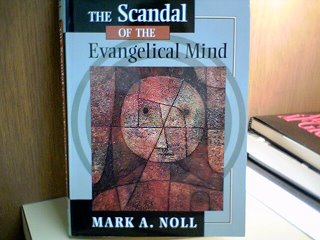5.04.2006
<사상> 001 베다(Veda)(B.C. 1200∼1500년경) 002 대장경(大藏經, 三藏, Tripitaka)(B.C. 1200∼이래 2500여년 동안 성장 발전) 003 공자(孔子)/논어(論語) 004 플라톤(Platon)/대화록(對話錄, Dialogues) 005 장주(莊周)/장자(莊子) 006 성서(聖書, The Bible)(50∼100년경) 007 아우구스티누스(Aurelius Augustinus)/고백(告白, Confessiones)(400년경) 008 코란(Holy Qu'ran)(640∼60년경) 009 주희(朱熹)/사서집주(四書集註)(1252) 010 아퀴나스(Thomas Aquinas)/신학대전(神學大全, Summa Theologiae)(1266∼73년경) 011 칼빈(Jean Calvin/그리스도교요강(敎要綱, Institutio christianae religionis)/(1536) 012 몽테뉴(Michel de Montaigne/수상록(隨想錄, Essais)(1580) 013 데카르트(Rene Descartes/방법서설(方法敍說, Discourd de la methode)(1637) 014 파스칼(Blase Pascal/팡세(Pansees)(1670) 015 칸트(Immanuel Kant)/순수이성비판(純粹理性批判, Ktitik der reinen Vernunft)(1781) 016 헤겔(Georg Wilhelrm Friedrich Hegel)/정신현상학(精神現象學, Phanomenologie des Geistes)(1807) 017 키에르케고르(Sφrn Aabye KierKegaard)/철학적단편후서(哲學的斷片後書, Afsluttende uridenskabeling efters krift til de philosophiske smuler)(1864) 018 니체(Friedrich Wilhelm Nietzsche)/짜라투스트라는 이렇게 말했다 (Also sprach Zarathustra)(1883∼84) 019 베르그송(Henri Bergson)/시간(時間)과 자유(自由) (Essai sur donnees immediates de la conscience)(1889) 020 프로이트(Sigmund Freud)/꿈의 해석(解釋)(Die Traumdeutung)<1900> 021 훗설(Edmund Hussel)/(순수현상학(純粹現象學)과 현상학적 철학시론 (現象學的 哲學試論)(Ideen zu einer reinen Phanomenologie und Phanomenologischen Philosophie)<1913∼52> 022 비트겐슈타인(Ludwig Wittgenstein)/논리철학논고(論理哲學論考) (Tractatus logico-philosophicus)<1922> 023 캇시러(Ernst Cassirer)/상징형식(象徵形式)의 철학(哲學) (Philosophie der Symbolischen Formen)<1923∼29> 024 화이트헤드(Alfred North Whitehead)/과학(科學)과 근대세계(近代世界) (Science and the Modern World)<1925> 025 하이덱거(Martin Heidegger)/존재(存在)와 시간(時間)(Sein und Zeit)<1927> <역사·지리> 026 헤로도토스(Herodotos)/역사(歷史, Historiai) 027 사마천(司馬遷)/사기(史記) 028 현장(玄장)/대당서역기(大唐西域記)<646> 029 마르코 폴로(Marco Polo)/동방견문록(東方見聞錄, The Description of the World)<1298> 030 이븐 바투타(Ibn Battutah)/여행기(旅行記, Rihlah)<1355∼56> 031 이븐 할둔(Ibn khald?n /세계사(世界史, Universal History)<1375∼78> 032 기본(Edward Gibbon)/로마제국쇠망사(帝國衰亡史, The History of the Decline and Fall of the Roman Empire) <1776∼88> 033 부르크하르트(Jakob Burckhardt)/이탈리아 르네상스의 문화(文化) (Die Kultur der Renaissance in Italian)<1860> 034 프레이저(Sir James George Fraser)/금엽지(金葉枝, The Golden Bough))<1911∼15> 035 토인비(Arnold Toynbee)/역사(歷史)의 연구(硏究)(A Study of History)<1934∼54)> 036 마키아밸리(Niccolo Machiavelli)/군주론(君主論, Il principe))<1513> 037 모어(Sir Thomas More)/유토피아(Utopia)<1556> 038 홉스(Thomas Hobbes)/리바이어던(Leviathan)<1651> 039 록크(Jhon Locke)/통치론(統治論, Two Treatises of Government)<1690> 040 몽테스큐(Charles Montesquieu)/법(法)의 정신(精神)(De l'esprit des loix)<1748> 041 룻소)(Jean Jacques Rousseau)/사회계약론(社會契約論, Du contrat social))<1762> 042 스미스(Adam Smith)/국부론(國富論, An Inquiry into the Nature and Causes of the Wealth of Nation))<1776> 043 말사스(Thomas Robert Malthus)/인구론 (人口論, An Essay on the Principle of Population))<1798> 044 마르크스(Karl Marx), 엥겔스(Friedrich 뚷딘)/공산당선언 (共産黨宣言, Manifesto der Kommunistischen Partei)<1848> 045 J. S. 밀(Jhon Stuart Mill)/자유론(自由論, On Liberty)<1859> 046 마르크스(Karl Marx)/자본론(資本論, Das Kapital))<1867∼94> 047 레닌(Vladimir Il'ich Lenin)/제국주의론 (帝國主義論, Imperializm, kak vysshaya stadiyn kapitalizma))<1917> 048 웨버(Max Weber)/경제(經濟)와 사회(社會)(Wirtschaft und Gesellshaft)<1921> 049 손문(孫文)/삼민주의(三民主義)<1924> 050 히틀러(Adolf Hitler) /나의 투쟁(鬪爭)(Mein Kamft)<1925∼27> 051 만하임(Karl Mannheim)/이데올로기와 유토피아(Ideologie und Utopia)<1929> 052 케인즈(John Maynard Keynes)/고용(雇傭)·이자(利子) 및 화폐(貨幣)의 일반이론 (一般理論) (The General Theory of Employment Interest and Money)<1936> <자연과학> 053 쿠페르니쿠스(Nicolaus Copernicus)/천체(天體)의 회전 (回轉)에 대(對)하여(De revolutionibus orbium caelestium)<1543> 054 하비(william Harvey)/혈액순환(血液循環)의 원리(原理) (Exercitatio de motu cordis et sanquinis in animalibus)<1628> 055 뉴톤(Sir Issac Newton)/자연철학(自然哲學)의 수학적 원리(數學的原理) (philosopia Naturalis principia Mathematica)<1687> 056 다윈Charles Darwin)/종(種)의 기원(起源)(On the Origin of Species)<1859> 057 파브르(Jean Henri Fabre)/곤충기(昆蟲記, Souvenirs entomologiques)r<1879∼1910> 058 아인슈타인(Albert Einstein)/상대성원리(相對性原理, Das Relativitatsprinzip)<1913> 059 파블로프(Ivan Petrrovich Pavlov)/조건반사(條件反射, Conditioned Reflexes) <1924> 060 하이젠버그(Werner Heisenberg)/양자론(量子論)의 물리적 기초 (物理的基礎)(Die physikalischen Prinzipien der Quantentheorie)<1930> <문학·예술> 061 호메로스(Homeros)/일리아드(Illias), 오디세이(Odysseia) 062 이솝(Aisopos)/우화(寓話, Fables)) 063 라마야나(Ramayana) 064 소포클레스(Sophocles)/오이디푸스왕(王)(Oidipus tyrannos) 065 아리스토텔레스(Aristoteles)/시학(詩學, Peri poietikes)) 066 플루타크(Plutarchos)/영웅전(英雄傳, Bioi paralleroi)<105∼115년경> 067 아라비안 나이트(Alf Laylah wa Layiah)<850년경> 068 두보(杜甫)/두공부집(杜工部集)<1039> 069 이백(李白)/이태백문집(李太白文集)<1080> 070 단테(Alighieri Dante)/신곡(神曲, Ladivina commedia) )<1303∼21> 071 나관중(羅貫中)/삼국지연의(三國志演義)<1321∼23년경> 072 셰익스피어(William Sakespeare)/햄리트(Hamlet)<1601> 073 세르반테스(Miguel de Cervantes)/돈키호테(Don Quijote)<1604> 074 밀튼(Jhon Milton)/실락원(失樂園, Paradise Lost))<1667> 075 괴테(Jhoann Wolfgang von Goethe)/파우스트(Faust)<1808∼32> 076 포우(Edgar Allan Poe)/괴기담(怪奇譚, Tales of the Grotesques and Arabesques))<1830> 077 스탕달(Stendhal)/적(赤)과 흑(黑)(Le rouge et le noir)<1839> 078 발자크(Honore de Balzac)/인간극(人間劇, La commedie humaine)<1842> 079 워즈워스(William Wordworth), 콜리지(Samuel Taylor Coleridge) / 서정민요집(抒情民謠集, Lylical Ballads))<1850> 080 멜빌(Hermann Melville)/백경(白鯨, Moby Dick)<1851> 081 휘트먼(Walt Whitman)/풀잎(Leaves of Grass)<1855> 082 도스토에프스키(Fyodor Mikhajlovich Dostoevskij)/ 죄(罪)와 벌(罰)(Prestuplenie i nakazanie)<1856> 083 보들레르(Charles Baudelaire)/악(惡)의 꽃(Les fleurs 여 mal)<1857> 084 유고(victor Hugo)/레미제라블(Les miserables)<1862> 085 톨스토이(Lev Nikoraevich Tolstoi)/전쟁(戰爭)과 평화(平和)<1864∼69> 086 아놀드(Matthew Arnold)/교양(敎養)과 무질서(無秩序)(Culture and Anarchy)<1875> 087 입센(Henrik Ibsen)/인형(人形)의 집(Et dukkehjem)<1879> 088 트웨인(Mark Twain)/허클베리 핀의 모험(冒險)(The Adventures of Huckleberry Finn)<1884> 089 지드(Andre Gide)/배덕자(背德者, L'immoraliste)<1902> 090 조이스(James Joyce)/율리시즈(Ulysses)<1922> 091 엘리오트(Thomas Stearns Eliot)/황무지(荒蕪地, The Waste Land)<1922> 092 릴케(Rainer Maria Rilke)/두이노의 비가(悲歌)(Duineser Elegien)<1923> 093 T·만(Thomas Mann)/마(魔)의 산(山)(Der Zauberberg)<1924> 094 카프카(Franz Kafka)/성(城, Das Schloss)<1929> 095 로렌스(David Herbert Lawrence)/채털리부인(夫人)의 사랑 (Lady Chatterley's Lover)<1928> 096 말르로(Andre Malraux)/인간조건(人間條件, La condition humanie))<1933> 097 사르트르(Jean Paul Sartre)/구토(嘔吐, La nausee))<1938> 098 까뮤(Albert Camus)/이방인(異邦人, Letranger)<1942> 099 헤밍웨이(Ernest Hemingway) /노인(老人)과 바다(The Old man and the Sea)<1952> 100 파스테르나크(Boris Leonidovich Pasternak) /의사(醫師) 지바고(Doktor Zhivago)<1957>
3.09.2006
Jesus lives in my heart!
The Heart
"Tomorrow morning," the surgeon began, "I'll open up your heart..." "You'll find Jesus there," the boy interrupted. The surgeon looked up, annoyed "I'll cut your heart open, " he continued, to see how much damage has been done..." "But when you open up my heart, you'll find Jesus in there," said the boy. The surgeon looked to the parents, who Sat quietly. " when I see how much damage has been done, I'll sew your heart and chest back up, and I'll plan what to do next." "But you'll find Jesus in my heart. The Bible says He lives there. The hymns all say He lives there. You'll find Him in my heart." The surgeon had had enough. "I'll tell you what I'll find in your heart. I'll find damaged muscle, low bloodsupply, and weakened vessels. And I’ll find out if I can make you well." "You'll find Jesus there too. He lives there." The surgeon left. The surgeon sat in his office, recording his notes from the surgery, "...damaged aorta, damaged pulmonary vein, widespread muscle deneration. No hope for transplant, no hope for cure. Therapy: painkillers and bed rest. Prognosis: "... here he paused,... death within one year." He stopped the recorder, but there was more to be said.
"Why"? he asked aloud. "Why did You do this? You've put him here; You've put him in this pain; and You've cursed him to an early death. Why?" The Lord answered and said, "The boy, My lamb, was not meant for your flock for long, for he is part of My flock, and will forever be. Here, in My flock, he will feel no pain, and will be comforted as you cannot imagine. His parents will one day join him here, and they will know peace, and My flock will continue to grow." The surgeon's tears were hot, but his anger was hotter. "You created that boy, and You created that heart. He'll be dead in months. Why"?
The Lord answered, "The boy, My lamb, shall return to my flock, for he has Done his duty: I did not put My lamb with your flock to lose him, but to retrieve another lost lamb." The surgeon wept..
The surgeon sat beside the boy's bed; the boy's parents sat across from him. The boy awoke and whispered, "Did you cut open my heart?" "Yes," said the surgeon. "What did you find?" asked the boy. "I found Jesus there," said the surgeon. Author Unknown
- Celebrate Jesus in 2005
"Tomorrow morning," the surgeon began, "I'll open up your heart..." "You'll find Jesus there," the boy interrupted. The surgeon looked up, annoyed "I'll cut your heart open, " he continued, to see how much damage has been done..." "But when you open up my heart, you'll find Jesus in there," said the boy. The surgeon looked to the parents, who Sat quietly. " when I see how much damage has been done, I'll sew your heart and chest back up, and I'll plan what to do next." "But you'll find Jesus in my heart. The Bible says He lives there. The hymns all say He lives there. You'll find Him in my heart." The surgeon had had enough. "I'll tell you what I'll find in your heart. I'll find damaged muscle, low bloodsupply, and weakened vessels. And I’ll find out if I can make you well." "You'll find Jesus there too. He lives there." The surgeon left. The surgeon sat in his office, recording his notes from the surgery, "...damaged aorta, damaged pulmonary vein, widespread muscle deneration. No hope for transplant, no hope for cure. Therapy: painkillers and bed rest. Prognosis: "... here he paused,... death within one year." He stopped the recorder, but there was more to be said.
"Why"? he asked aloud. "Why did You do this? You've put him here; You've put him in this pain; and You've cursed him to an early death. Why?" The Lord answered and said, "The boy, My lamb, was not meant for your flock for long, for he is part of My flock, and will forever be. Here, in My flock, he will feel no pain, and will be comforted as you cannot imagine. His parents will one day join him here, and they will know peace, and My flock will continue to grow." The surgeon's tears were hot, but his anger was hotter. "You created that boy, and You created that heart. He'll be dead in months. Why"?
The Lord answered, "The boy, My lamb, shall return to my flock, for he has Done his duty: I did not put My lamb with your flock to lose him, but to retrieve another lost lamb." The surgeon wept..
The surgeon sat beside the boy's bed; the boy's parents sat across from him. The boy awoke and whispered, "Did you cut open my heart?" "Yes," said the surgeon. "What did you find?" asked the boy. "I found Jesus there," said the surgeon. Author Unknown
- Celebrate Jesus in 2005
2.18.2006

"The much more improtant matter is what it means to think like a Christian about the nature and workings of the physical world, the character of human social structures like government and the economy, the meaning of the past, the nature of artistic creation, and the circumstances attending our perception of the wold outside ourselves. Failure to exercise the mind for Christ in these areas has become acute in the twentieth century. that failure is the scandal of the evangelical mind."
2.01.2006
Subscribe to:
Comments (Atom)
